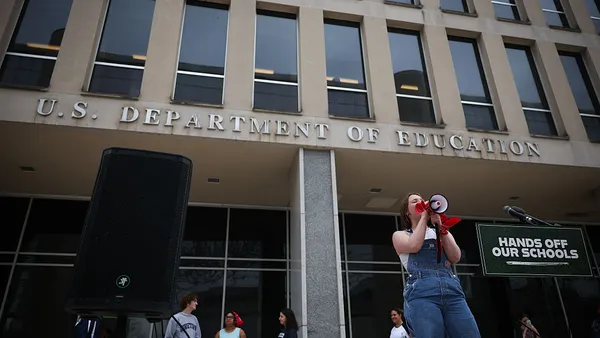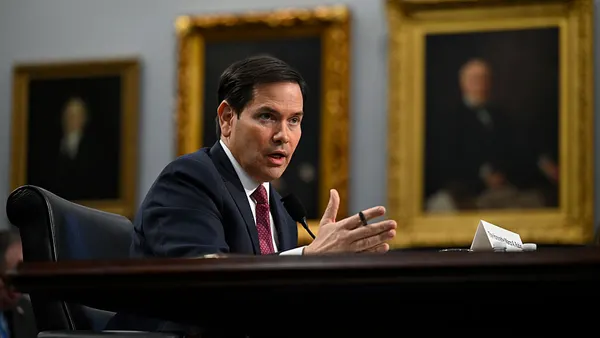Dive Brief:
- Kean University, in New Jersey, has drawn criticism from its faculty union for a plan to transfer 102 faculty members at its satellite campus in China to the payroll of the Chinese government, according to the NJ Spotlight. Wenzhou-Kean University opened in 2012.
- Kean President Dawood Farahi wrote in a letter to faculty that the switch was a planned step and would not change how they were managed or their level of academic freedom. He noted Duke University and New York University also use a local employment model on campuses in China, which Inside Higher Ed confirmed.
- New Jersey's Secretary of Higher Education is investigating the matter and sent a letter to the university requesting detailed information regarding faculty members' rights and protections under Wenzhou-Kean as well as the financial structure and organization of the Chinese satellite campus, according to NJ.com.
Dive Insight:
As international programs become a more popular venture for U.S. colleges, they are subject to public scrutiny over academic freedom concerns and whether some are compromising American values to turn a profit.
This is not the first time Kean has faced scrutiny for these issues. Three years ago, the university's union expressed concerns about job postings that listed membership in the Chinese Communist Party as a preference and asked applicants about personal information that American anti-discrimination laws bar from being a factor in hiring decisions, Inside Higher Ed reported.
Other universities have been rethinking their international relationships due to similar concerns. Last month, Cornell University suspended its participation in exchange programs with Renmin University of China over concerns that student protesters had been mistreated, and the U.S.-accredited Central European University reported it would move its campus from Hungary where it said the increasingly far-right government was restricting its freedom.
Likewise, New York University's journalism department cut ties with the college's Abu Dhabi campus in the United Arab Emirates last year after two professors were denied work visas to the country, according the The Chronicle of Higher Education.
At a 2016 conference on the topic, Sijbolt Noorda, president of the Magna Charta Observatory, said short-term financial gain often drives international partnerships rather than efforts to promote solidarity between countries, Inside Higher Ed reported. He recommended colleges considering an international expansion enter such arrangements by finding shared objectives with the other country and determining in advance what will be acceptable and what won't.











